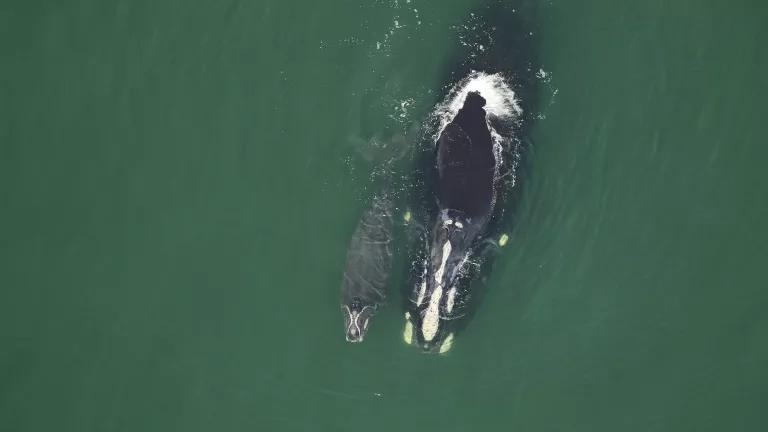South Carolina Coastal Conservation League v. Ross
Case Status
ClosedLast Update

The ocean is an acoustic world. Unlike light, sound travels quickly and easily in seawater. Whales, dolphins, and other marine species depend on their hearing to feed, communicate, navigate, search for mates, and raise their young. When loud noises pierce the underwater world, they disrupt all of these vital behaviors, threatening the health and survival of marine species.
On November 30, 2018, the National Marine Fisheries Service (NMFS) under the Trump administration issued permits to five oil and gas exploration companies, allowing them to harass and injure hundreds of thousands of whales and dolphins while conducting seismic surveys in the Atlantic Ocean from Delaware to Florida. Seismic surveys search for potential oil and gas deposits under the ocean floor by firing dozens of pressurized airguns simultaneously underwater, as often as every 10 seconds, for months at a time. If these surveys are allowed to go forward, they will harm dozens of marine mammal species, including the North Atlantic right whale—an iconic, critically endangered species fighting to survive as its numbers dwindle.
Together with our allies, NRDC challenged the Trump administration’s unlawful action. We filed a lawsuit in district court in Charleston, South Carolina, where we combined forces with more than a dozen local municipalities to hold the federal government to its legal responsibilities under the Endangered Species Act, the Marine Mammal Protection Act, and the National Environmental Protection Act. Ten coastal states, stretching from Maine to South Carolina, joined us in our fight to protect coastal communities and wildlife.
In October 2020, the Trump administration’s plans to push oil and gas development off the Atlantic coast began collapsing. In order for seismic ships to begin blasting, they must receive one additional permit from the Bureau of Ocean Energy Management (BOEM). However, after a long wait for these BOEM permits—a wait that resulted in part from our ongoing legal battle—attorneys for the federal government admitted that the NMFS permits were close to expiration. Without a legal way of extending the permits beyond November 30, 2020, and with fossil fuel companies not prepared to launch their boats, there will be no seismic blasting off the coast of the Atlantic this year. As a result, all parties agreed that there was no need for the legal battle over the soon-to-expire seismic permits to continue. On October 6, 2020, the Court dismissed the case.
This is a significant victory in the fight against seismic blasting and for the protection of marine species but the threat isn’t over. NRDC will continue the fight until offshore oil and gas exploration is prohibited for good.
Case Documents
Complaint (PDF) Court Order Directing BOEM to Stop Work on Seismic Permits (PDF) Brief in Support of Plaintiffs' Motion for Preliminary Injunction (PDF) Reply in Support of Plaintiffs' Motion for a Preliminary Injunction (PDF)Related Content

Oil and Gas Industry Halts Its Efforts to Use Seismic Blasting in the Atlantic Ocean

Offshore Drilling 101

Environmental Groups Ask Court to Block Harmful Seismic Blasting in the Atlantic

NRDC and Partners Sue to Protect Marine Life from Seismic Blasting
